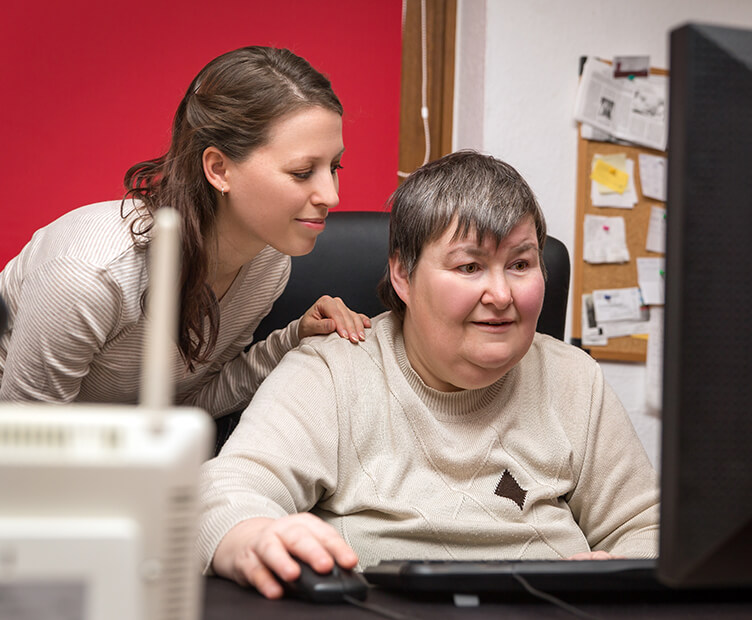Important Parts of an IRT Meeting
Below are important elements that help make an IRT successful.
IRT Members
- Key Members - The job seeker and their Team Helper.
- Additional Members - This includes anyone else who provides support to the job seeker.
- Team members may change as the job seeker explores and enters different phases of their career.
Meeting Space
- Find a confidential, safe space for an in-person meeting.
- If someone would like to participate but can't make it, try to schedule a video chat or conference.
Organization
- Create a binder to store important information, such as notes from meetings, important contact information of IRT members, extra copies of the resume, and anything else that might be important to the job seeker's journey.
Checklist of Forms & Tools
Below is a list of tools to support the facilitation of an IRT. The job seeker and team helper can decide who is responsible for each tool.
- Required paperwork and intake forms.
- Agenda - An agenda helps guide the meeting. The DRC or career counselor can help teach the job seeker to create one if they need support.
- Action Plans - Use this tool to record next steps, who is responsible, and deadlines.
- Contact Sheets and Communication Plan - Talk about when and what communication tools are best for all members of the IRT.
Facilitation
- If possible, the job seeker should lead the meeting. The Team Helper or whoever the job seeker trusts, can also lead the conversation. This should always be guided by a person-centered approach.
- Team members should be given roles during the meeting. For example, one person should keep time, another person should make sure the IRT is staying on topic, and another person should take good notes during the meeting.
Follow Through
- It’s important that everyone complete their tasks and maintain contact. If possible, the job seeker should follow up with the IRT team.
Frequency of Meetings
- Sometimes the job seeker only needs one IRT meeting. Other times, many meetings over three to six months might be needed to help the young person make progress along their career journey.
- The first three to six months are a very important time in the job seeker's journey. During this time, the team should meet as often as possible to figure out how to work together in order to support the job seeker.








